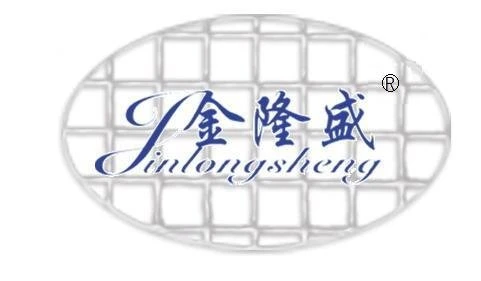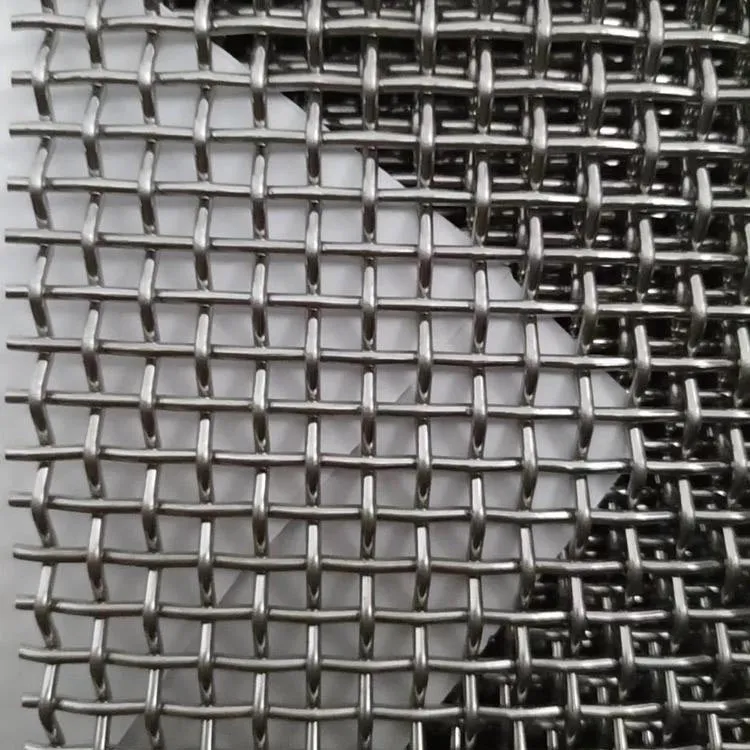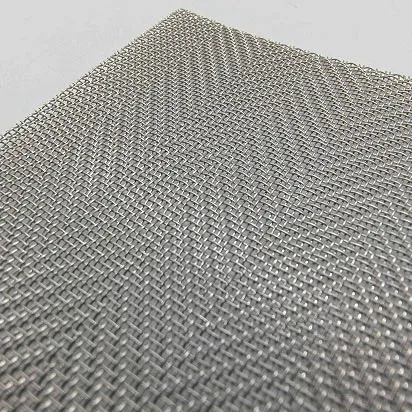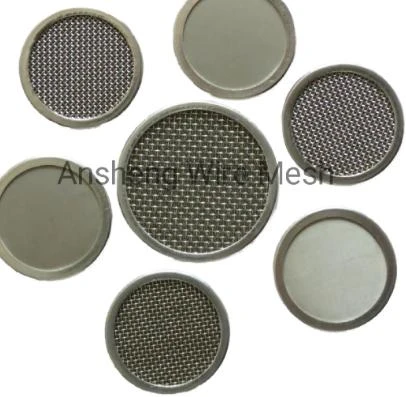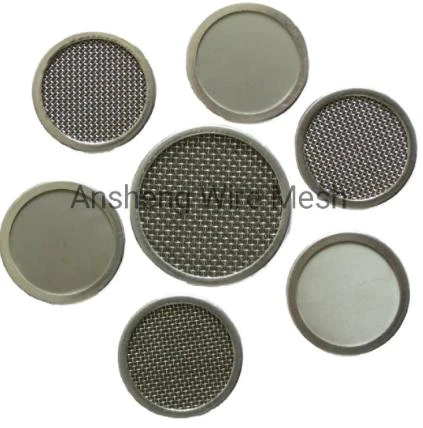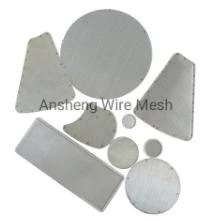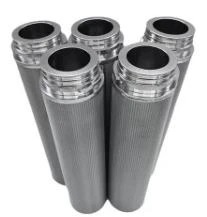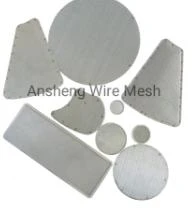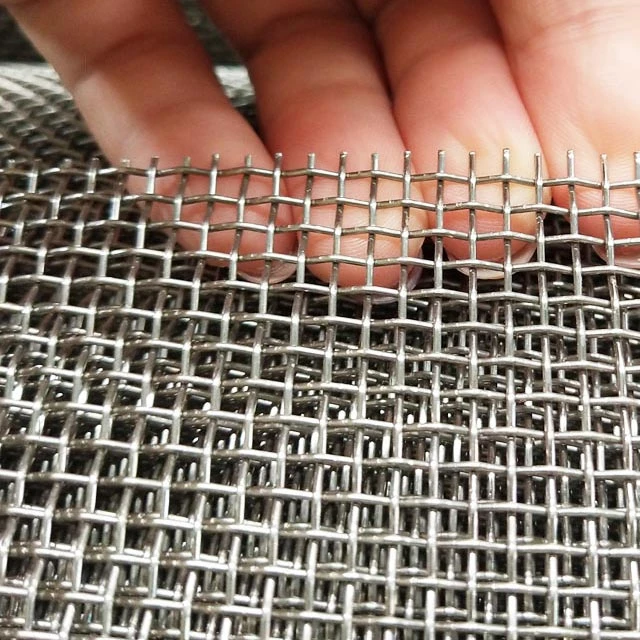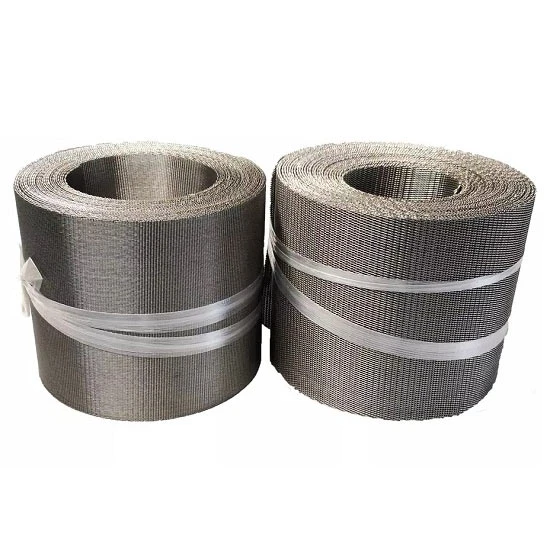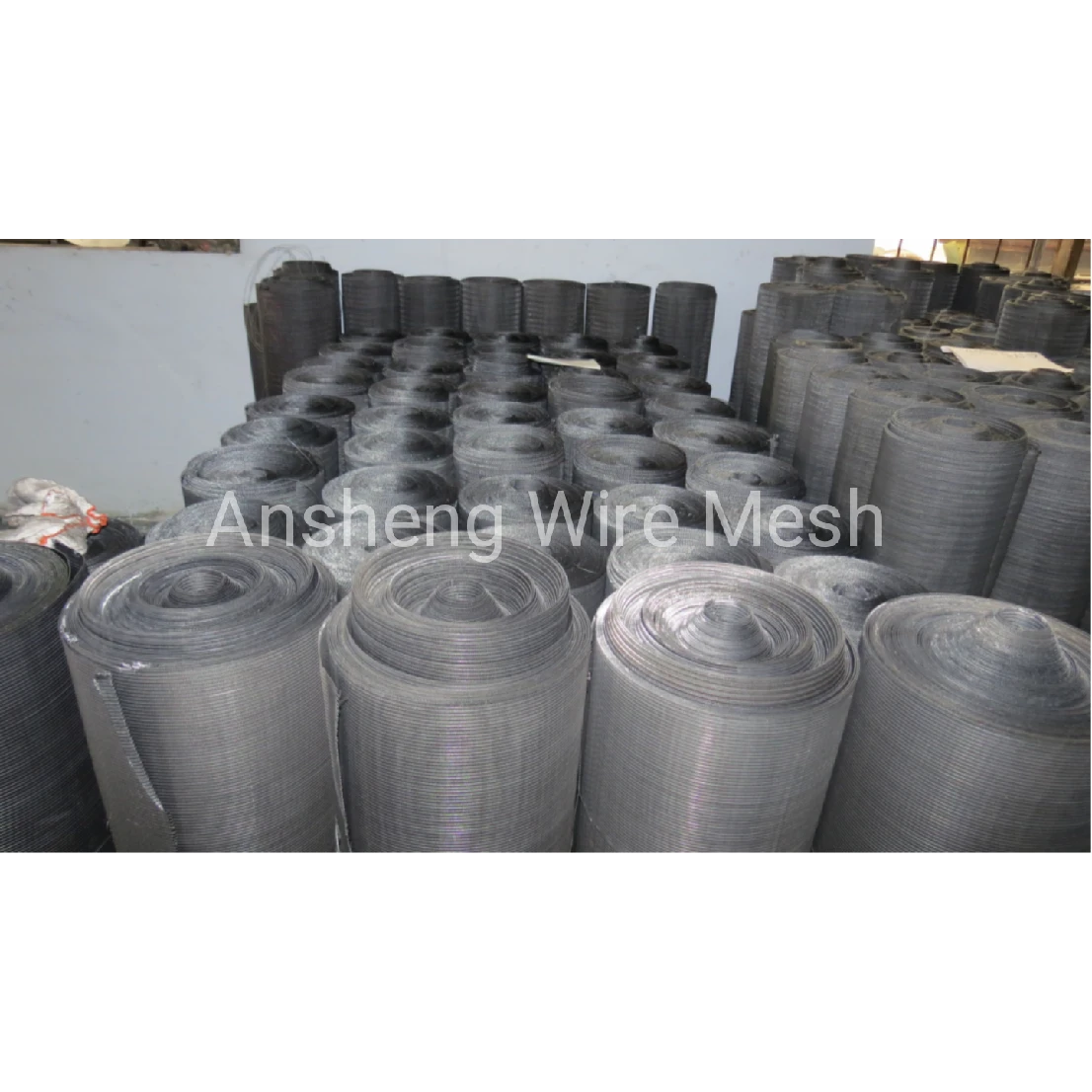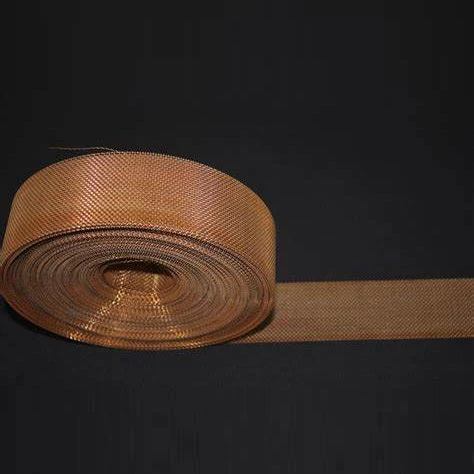Introduction to Cylinder Filters in Industrial Applications
In diverse industrial sectors, the integrity of operational processes hinges significantly on effective filtration systems. A critical component in achieving this is the cylinder filter, a versatile and robust solution designed to purify gases and liquids by removing particulate matter. These filters are engineered for high performance, durability, and efficiency, playing a pivotal role in maintaining equipment longevity, product purity, and environmental compliance. From safeguarding sensitive machinery against abrasive contaminants to ensuring the cleanliness of process fluids, the application of high-quality cylindrical filters is indispensable across a spectrum of challenging environments. This article delves into the technical aspects, applications, and strategic advantages of integrating these essential filtration components into modern industrial infrastructures.
The demand for sophisticated filtration solutions has grown exponentially, driven by stringent regulatory standards, increasing process complexities, and the imperative for operational cost reduction. The advancements in materials science and manufacturing technologies have enabled the development of highly efficient cylindrical air filter and liquid filter variants, capable of addressing specific filtration challenges with precision. These components are not merely passive barriers but active enablers of operational excellence, contributing to enhanced system performance and reduced maintenance overheads.
Industry Trends and Technological Advancements
The industrial filtration market, particularly for components like the cylinder filter, is experiencing dynamic growth, propelled by several key trends. Digitalization and the adoption of Industry 4.0 principles are leading to the development of smart filtration systems, incorporating sensors for real-time monitoring of differential pressure, flow rates, and filter saturation. This allows for predictive maintenance, optimizing filter replacement schedules and minimizing downtime. According to market research, the global industrial filtration market is projected to reach USD 45.9 billion by 2028, growing at a CAGR of 6.3%, with increasing demand for high-efficiency particulate air (HEPA) filters and ultra-low penetration air (ULPA) filters driven by environmental concerns and stricter air quality regulations.
Another significant trend is the increasing emphasis on sustainable and eco-friendly filtration solutions. Manufacturers are focusing on developing filters with longer service lives, recyclable materials, and lower energy consumption. Innovations in membrane technology, nanofiber media, and advanced composite materials are enhancing filtration efficiency while reducing pressure drop, thus leading to energy savings. The shift towards higher temperature and corrosive applications also necessitates the use of more robust and chemically resistant materials, such as various grades of stainless steel, Hastelloy, and titanium, ensuring the longevity and reliability of the filter element. The evolution of the air filter cylinder is continuously pushing boundaries for performance and cost-effectiveness.
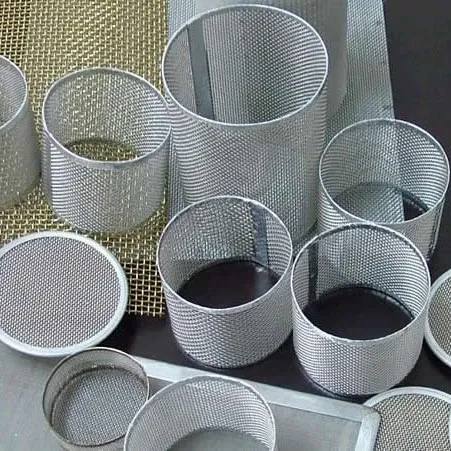
Manufacturing Process Flow of Cylinder Filter Tubes
The production of a high-performance cylinder filter tube involves a meticulous, multi-stage manufacturing process, ensuring both structural integrity and optimal filtration efficiency. This process combines advanced material science with precision engineering techniques.
Materials Selection:
The choice of material is paramount and is dictated by the intended application, fluid compatibility, temperature, and pressure requirements. Common materials include various grades of stainless steel (304, 316L, 310S), Hastelloy, Inconel, Monel, and titanium. These materials are selected for their excellent corrosion resistance, mechanical strength, and thermal stability. For specific applications requiring a cylindrical air filter, specialized filter media like sintered metal powder, woven wire mesh, non-woven fabrics, or pleated synthetic media are integrated.
Manufacturing Processes:
- Sintering (for metal powder filters): Fine metal powders are compacted into a desired shape and then heated below their melting point. This process creates a porous structure with interconnected pores, offering precise filtration ratings and high mechanical strength.
- Weaving/Knitting (for wire mesh filters): Precision weaving machines create uniform mesh patterns from fine metal wires. The weave type (plain, twill, Dutch) dictates the filtration characteristics and structural rigidity.
- Pleating: For increased surface area, synthetic or metallic filter media are pleated using specialized machinery. Pleating dramatically enhances the dirt-holding capacity and extends the service life of the filter element, crucial for a high-performance air filter cylinder.
- Welding and Fabrication: Components such as end caps, support cores, and sealing rings are precisely cut and joined to the filter media using advanced welding techniques (e.g., TIG welding, laser welding) to ensure leak-proof and robust construction. This process typically adheres to standards like AWS D1.1/D1.6.
- CNC Machining: For complex designs or specific mounting requirements, CNC machining is employed to achieve tight tolerances and intricate geometries for end fittings and structural components.
Quality Control and Testing Standards:
Every stage of manufacturing incorporates stringent quality control measures. Final products undergo rigorous testing to ensure compliance with international standards such as ISO 2941 (Collapse/Burst Resistance), ISO 2942 (Fabrication Integrity), ISO 2943 (Material Compatibility), ISO 3723 (End Load Test), and ISO 16889 (Multi-pass Test for filtration efficiency). Bubble point tests are frequently used to verify maximum pore size, while flow rate and pressure drop tests confirm performance characteristics. These tests ensure a typical service life of 12-24 months, depending on application severity.
Schematic Process Steps:
Technical Specifications and Parameters
Understanding the detailed technical specifications of a cylinder filter is crucial for proper selection and optimal performance within industrial systems. These parameters define the filter's capabilities and limitations.
Key Technical Parameters:
- Filtration Rating: The size of particles (in microns) that the filter can effectively remove. This can range from 0.2 µm for sterile filtration to hundreds of microns for coarse filtration. Absolute ratings ensure removal of 99.9% of particles at or above the stated size, while nominal ratings indicate a percentage removal.
- Material of Construction: Specified for filter media, support structure, and end caps (e.g., SS316L, Hastelloy C276).
- Operating Temperature Range: Defines the safe temperature limits for continuous operation (e.g., -50°C to 450°C for metallic filters).
- Maximum Differential Pressure: The maximum pressure drop the filter element can withstand before structural failure (e.g., 20 bar).
- Flow Rate: The volume of fluid or gas that can pass through the filter per unit time at a specified pressure drop (e.g., 50 Nm³/h for air at 0.1 bar delta P).
- Dimensions: Outer Diameter (OD), Inner Diameter (ID), and Length, specified in millimeters or inches.
- End Connections: Type of connection to the filter housing (e.g., DOE, SOE, threaded, flange).
- Surface Area: Effective filtration area, particularly important for pleated designs, influencing dirt-holding capacity and service life.
Typical Product Specification Table:
| Parameter | Specification Range | Typical Value (Example) |
|---|---|---|
| Filtration Rating (Absolute) | 0.2 µm to 200 µm | 5 µm |
| Material of Construction | SS304, SS316L, Hastelloy, Titanium | SS316L |
| Operating Temperature | -50°C to 450°C | 250°C |
| Max Differential Pressure | Up to 25 bar | 10 bar (145 psi) |
| Flow Rate (Water, 0.1 bar ΔP) | Up to 500 L/min per 10" element | 200 L/min |
| Dimensions (Length) | 5" to 40" standard; custom available | 20 inches |
| End Connections | DOE, SOE (222/226 O-ring), Threaded, Flange | SOE 222 O-ring with fin |
Technical Advantages and Performance Benefits
The deployment of advanced cylindrical air filter and liquid filtration solutions offers a myriad of technical advantages critical for modern industrial operations. These benefits extend beyond mere particle removal, encompassing significant operational and economic improvements.
- Superior Contaminant Removal: Precision-engineered filter media ensures high efficiency in capturing sub-micron particles, crucial for protecting downstream equipment and maintaining product quality. For instance, a cylinder hepa filter variant can achieve 99.97% efficiency at 0.3 microns, vital for cleanroom environments.
- Extended Service Life & Reduced Maintenance: Robust construction and optimized media design lead to higher dirt-holding capacities, translating into longer operational cycles and fewer filter change-outs. This directly reduces labor costs and associated downtime.
- Enhanced Corrosion Resistance: The use of specialized alloys like SS316L, Hastelloy, or titanium renders the filters highly resistant to corrosive chemicals, high temperatures, and aggressive process fluids, significantly extending their operational lifespan in harsh environments.
- Energy Efficiency: Optimized flow paths and low-pressure drop designs minimize the energy required for fluid or gas propulsion through the system. This can lead to substantial energy savings over the operational life of the filtration system.
- High-Temperature and High-Pressure Capabilities: Sintered metal and robust wire mesh filter elements are designed to operate reliably under extreme temperature and pressure differentials, unlike many conventional fibrous filters.
- Cleanability and Reusability: Many metallic cylindrical air filter elements are back-washable or chemically cleanable, allowing for multiple reuse cycles. This feature reduces operational waste and long-term replacement costs.
"The adoption of advanced stainless steel cylinder filters in our chemical processing lines has not only eliminated recurring equipment failures due to particulate contamination but also reduced our energy consumption by an estimated 12% annually due to lower system pressure drops. This represents a significant ROI for our operations." - Lead Engineer, Petrochemical Plant.
Application Scenarios and Target Industries
The robust and versatile nature of cylindrical air filters makes them indispensable across a broad spectrum of industrial applications. They are designed to excel in environments where precise filtration, high flow rates, and resistance to harsh conditions are paramount.
Target Industries:
- Petrochemical and Oil & Gas: Used for protecting critical equipment like compressors, turbines, and pumps from particulate damage. Essential for gas sweetening, natural gas processing, catalyst recovery, and safeguarding instrumentation.
- Metallurgy and Metal Processing: Filtration of cooling water, hydraulic oils, and quench fluids to remove scale, metal fines, and other contaminants, ensuring product quality and equipment reliability. Also used in gas filtration for furnace operations.
- Water Supply & Drainage / Wastewater Treatment: Pre-filtration for reverse osmosis (RO) and ultrafiltration (UF) systems, removal of suspended solids from industrial wastewater, and protection of pumps and nozzles.
- Pharmaceutical and Biotechnology: Sterilizing filtration of air, gases, and liquids, particularly for fermentation processes, product isolation, and sterile filling operations. Often utilizes cylinder HEPA filter variants for critical air quality.
- Power Generation: Filtration of cooling water, lube oil for turbines, and air intake for gas turbines and generators, extending equipment life and enhancing operational efficiency.
- Food & Beverage: Clarification of process liquids, sterile air filtration for packaging, and protection against microbial contamination.
- Chemical Processing: Filtration of aggressive chemicals, solvents, and catalysts, requiring high chemical compatibility and temperature resistance.
Typical Application Scenarios:
- Process Fluid Purification: Ensuring the purity of feedstocks, intermediates, and final products by removing unwanted particles. For example, in the production of high-purity chemicals, where even minute contaminants can compromise product integrity.
- Equipment Protection: Safeguarding pumps, nozzles, heat exchangers, and other sensitive machinery from abrasive particles that can cause wear and tear. This is common in hydraulic systems and lubricant filtration.
- Catalyst Retention and Recovery: In chemical reactions, filtering out valuable catalysts for reuse, preventing loss and maintaining process efficiency.
- Steam Filtration: Removing rust, scale, and other particulates from process steam to protect steam traps, valves, and other equipment, ensuring efficient heat transfer and preventing product contamination.
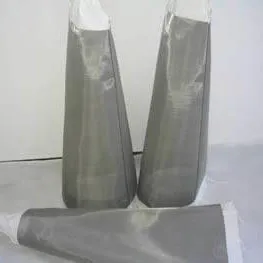
Vendor Comparison and Differentiating Factors
Selecting the right supplier for industrial filtration components is a critical decision that impacts operational efficiency, cost-effectiveness, and overall system reliability. While many vendors offer cylindrical filter elements, key differentiating factors often lie in material quality, manufacturing precision, customization capabilities, and post-sales support.
Key Factors for Vendor Comparison:
- Certifications and Compliance: Reputable vendors adhere to international quality standards (e.g., ISO 9001:2015, ISO 14001) and product-specific certifications (e.g., FDA compliance for food/pharma grade filters, PED for pressure equipment).
- Material Traceability: Assurance of raw material quality through verifiable sourcing and material test reports (MTRs) for alloys used in the cylinder filter construction.
- Manufacturing Capabilities: Access to advanced manufacturing techniques (sintering, laser welding, CNC machining) ensures precision and consistency, vital for producing high-integrity filters.
- Customization Expertise: The ability to design and produce filters to exact specifications, accommodating unique dimensions, connection types, and media requirements for specialized applications.
- R&D and Innovation: Vendors investing in research and development often offer cutting-edge filter media and design improvements, leading to superior performance and efficiency.
- Application Engineering Support: Expert assistance in selecting the optimal filter type, media, and design based on specific process parameters and fluid characteristics.
- Lead Times and Logistics: Efficient production planning and supply chain management for reliable delivery, especially for critical spare parts or project timelines.
Product Comparison Table (Illustrative):
| Feature/Vendor | AnSheng Filters (Example) | Competitor A | Competitor B |
|---|---|---|---|
| Material Traceability | 100% with MTRs | Selective | Limited |
| Custom Design Capability | Extensive, CAD/FEA support | Moderate | Standard only |
| Quality Certifications | ISO 9001, CE, PED | ISO 9001 | Basic QC |
| Average Lead Time (Std. Product) | 2-4 weeks | 3-6 weeks | 4-8 weeks |
| After-Sales Support | Dedicated technical team, on-site if needed | Email/phone support | Basic only |
Customized Solutions
While standard cylinder filter configurations address many industrial needs, specialized applications frequently require bespoke solutions. Customization allows for optimal integration into existing systems and addresses unique filtration challenges that off-the-shelf products cannot meet. Customization options for air filter cylinder elements are expansive.
Areas of Customization:
- Dimensions and Configuration: Tailoring outer diameter, inner diameter, length, and overall shape to fit specific housing designs, including multi-element arrays.
- Material of Construction: Selecting exotic alloys (e.g., Hastelloy, Duplex Stainless Steel, Titanium) for extreme chemical compatibility or high-temperature resilience, beyond standard SS316L.
- Filtration Media: Developing specific media compositions (e.g., layered sintered media, specific weave patterns for wire mesh, pleated synthetic variants) to achieve precise filtration ratings or optimize dirt-holding capacity.
- End Connections and Sealing: Designing custom end caps, gaskets, and sealing mechanisms (e.g., specific o-ring materials, unique flange configurations) to ensure perfect fit and leak-free operation.
- Surface Treatment: Applying specialized coatings or treatments (e.g., electropolishing for pharmaceutical use, passivation for enhanced corrosion resistance) to meet application-specific requirements.
- Performance Characteristics: Engineering filters to achieve specific pressure drop, flow rate, or backwashability characteristics tailored to system demands.
A thorough consultation process involving detailed engineering analysis (including CFD simulations and FEA) is typically employed to define the exact requirements, ensuring the customized filter delivers optimal performance and reliability for the intended application.
Application Case Studies
Real-world applications demonstrate the tangible benefits of high-performance filtration solutions. These case studies highlight how tailored cylinder filter deployments have resolved critical operational challenges and delivered significant value.
Case Study 1: Enhanced Turbine Protection in Power Generation
- Client: Major Thermal Power Plant in the Middle East.
- Challenge: Frequent failures of gas turbine fuel nozzles and erosion of turbine blades due to fine particulate contamination (silica, rust) in natural gas supply. Existing filters had low dirt-holding capacity and high-pressure drop, leading to frequent change-outs.
- Solution: Implementation of custom-designed, pleated stainless steel cylindrical air filter elements with an absolute filtration rating of 1 µm. The filters were engineered for high flow rates and increased surface area, ensuring minimal pressure drop.
- Results: After installation, the client reported a 90% reduction in fuel nozzle blockages and a significant decrease in turbine blade erosion over a 12-month period. Filter service life extended from 3 months to 10 months, resulting in a 65% reduction in filter replacement costs and a 15% improvement in overall turbine efficiency due to cleaner fuel.
Case Study 2: Improved Water Quality in Pharmaceutical Manufacturing
- Client: Multinational Pharmaceutical Company, API Production Facility.
- Challenge: Ensuring particle-free deionized (DI) water for Active Pharmaceutical Ingredient (API) wash steps. Existing polypropylene cartridge filters experienced premature clogging due to colloidal silica, leading to batch contamination risks and high operational costs.
- Solution: Deployment of SS316L sintered metal powder cylinder filters with a 0.5 µm absolute rating, specifically designed for high-purity water applications. These reusable filters were integrated into an automated backwash system.
- Results: The client achieved consistent, sub-micron particle removal, eliminating batch contamination incidents. The reusable filters reduced consumable waste by 80% and lowered operational expenditure by 40% annually compared to disposable cartridges. The system easily maintained FDA compliance for water quality.
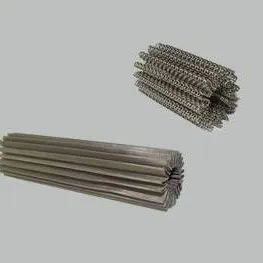
Ensuring Trust and Authoritativeness ( Standards)
Establishing trustworthiness and authoritativeness is paramount in the B2B sector. Our commitment to Google's (Expertise, Experience, Authoritativeness, Trustworthiness) standards is reflected in every aspect of our operations, from product design to customer support.
Company Certifications & Compliance:
- ISO 9001:2015 Certified: Demonstrates our adherence to a robust quality management system, ensuring consistent product quality and customer satisfaction.
- CE Marking / PED Compliance: For filter housings and pressure-retaining components, ensuring conformity with European safety directives.
- Material Test Reports (MTRs): Provided with every metallic filter element, verifying the chemical composition and mechanical properties of the raw materials used.
Partnerships & Experience:
With over 15 years of dedicated service in industrial filtration, we have cultivated long-term partnerships with leading companies across petrochemical, pharmaceutical, and water treatment sectors. Our engineering team, comprising industry veterans with decades of collective experience, brings unparalleled expertise to every project. We are proud to have supported over 500 industrial clients globally in optimizing their filtration processes.
Logistics & Customer Support
Lead Time & Fulfillment:
We understand the critical nature of timely delivery in industrial operations. For standard cylinder filter products, our typical lead time is 2-4 weeks from order confirmation. Custom solutions or large-volume orders may require 4-8 weeks, depending on complexity and material availability. We maintain a robust inventory of common raw materials to facilitate expedited manufacturing when required. Our global logistics network ensures efficient and reliable shipment to any location worldwide.
Warranty Commitments:
All our filter products are backed by a comprehensive 12-month warranty against manufacturing defects and material faults under normal operating conditions. This commitment underscores our confidence in the quality and durability of our filtration solutions. Detailed warranty terms and conditions are available upon request.
Customer Support:
Our dedicated technical support team is available to assist with product selection, troubleshooting, and application-specific inquiries. We offer:
- 24/7 Online Support: Via email and live chat for urgent queries.
- Technical Consultation: Our engineers provide expert advice on optimizing your filtration systems.
- On-site Service: Available for complex installations or performance assessments, upon arrangement.
- Documentation: Comprehensive technical datasheets, installation guides, and maintenance manuals.
Frequently Asked Questions (FAQ)
Q1: What is the typical service life of a cylinder filter?
A1: The service life varies significantly based on the application, fluid cleanliness, operating conditions (temperature, pressure), and the type of filter media. Generally, a well-maintained sintered metal filter can last from 1 to 5 years, or even longer, especially if it's regularly cleaned and back-washed. Disposable media typically requires more frequent replacement.
Q2: Can these filters be cleaned and reused?
A2: Yes, many metallic cylinder filter elements, such as those made from sintered metal or woven wire mesh, are designed for reusability. They can be effectively cleaned using methods like back-washing with process fluid or gas, ultrasonic cleaning, or chemical cleaning, significantly reducing operational waste and costs.
Q3: How do I select the correct filtration rating for my application?
A3: Selecting the correct filtration rating (micron size) depends on the size of the contaminants you need to remove and the desired purity level of your fluid or gas. Consider the sensitivity of downstream equipment and product quality requirements. Our technical team can assist you in performing a detailed analysis to recommend the optimal rating.
Q4: What are the advantages of using stainless steel over other materials?
A4: Stainless steel (especially 316L) offers excellent corrosion resistance, high mechanical strength, and good temperature stability, making it suitable for a wide range of industrial applications. It is also cleanable and reusable. For extremely corrosive or high-temperature environments, more specialized alloys like Hastelloy or Inconel might be recommended.
Q5: Is customization available for unique requirements?
A5: Absolutely. We specialize in providing customized filtration solutions. Whether you need specific dimensions, unique end connections, specialized materials, or tailored performance characteristics, our engineering team can work with you to design and manufacture a filter element that precisely meets your application's demands.
References
- ISO International Standards for Filters and Filtration. www.iso.org
- MarketsandMarkets. "Industrial Filtration Market Global Forecast to 2028." Published October 2023.
- American Welding Society (AWS) D1.1/D1.6 Structural Welding Code. www.aws.org
- U.S. Food and Drug Administration (FDA) Guidance for Industry. www.fda.gov
- European Pressure Equipment Directive (PED) 2014/68/EU. ec.europa.eu/growth/sectors/pressure-equipment
Post time: Aug . 30, 2025 07:20
